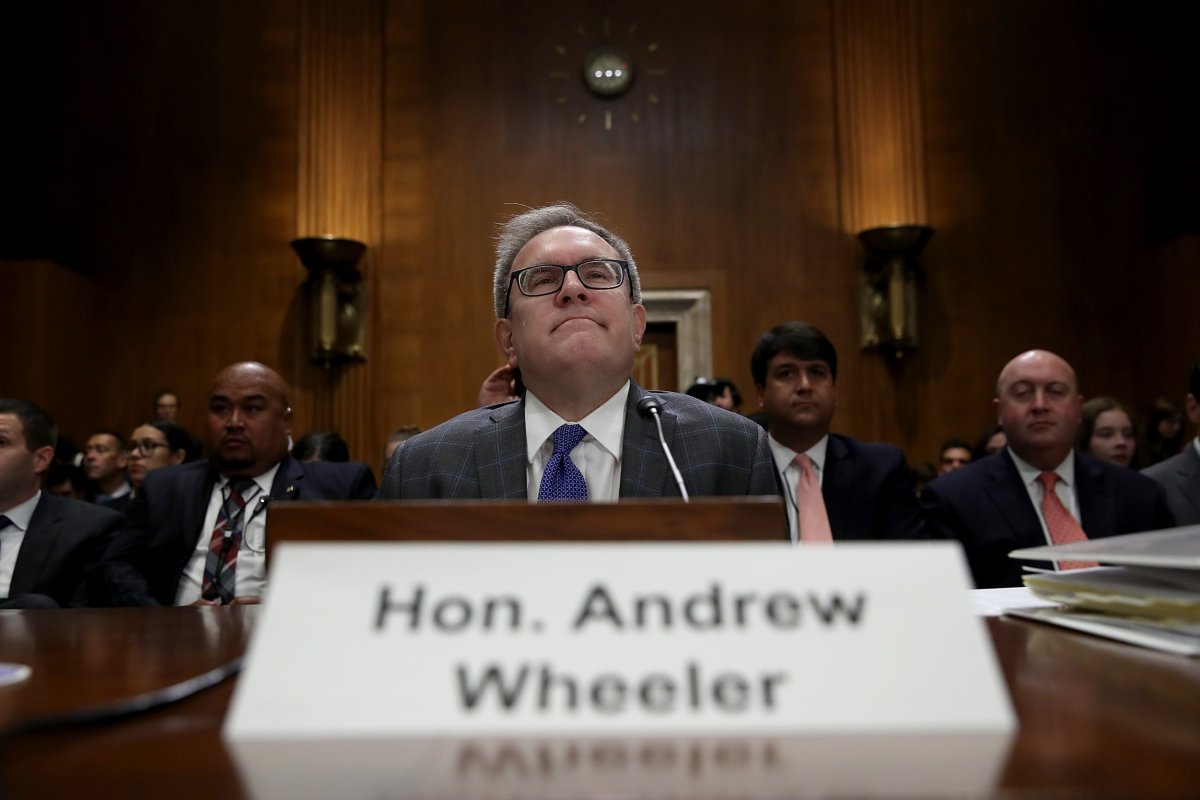The Environmental Protection Agency's proposal to limit what scientific evidence can guide public health regulations echoes tactics used by the tobacco industry to invalidate science regarding the tobacco industry, scientists told Newsweek.
The EPA plans to require scientists to disclose all raw data before the agency considered a study's conclusions, The New York Times reported Monday. The proposal, which was described by the government as a step toward transparency, would restructure the process by which the EPA creates public health regulations.
The report unleashed a wave of condemnations from scientists and researchers. Critics said that the change would impede the agency's ability to implement new protections and marked a dangerous escalation in the Trump administration's broader assault on science and environmental regulations.
In a 1996 message sent by a tobacco industry lawyer to the RJ Reynolds Tobacco Company, a similar tactic is described. The correspondence—which was sent just two years before the United States entered the sweeping Tobacco Master Settlement Agreement that settled claims brought by 46 states and the District of Columbia against major tobacco companies—argues that RJ Reynolds Tobacco Company should push to restructure the process through which the government evaluates scientific evidence for regulations.
"It is critical to our overall goal that EPA not be allowed to change the forum into an industry-by-industry examination. Equally important, the process should not devolve into 'outdoor air' interest seeking to shift the focus to 'indoor air' interests," said the 1996 note, prompted by concerns that the EPA would soon re-evaluate policies relating to environmental tobacco smoke. "Instead, the efforts we envision focus on the process by which EPA arrived at its scientific conclusions, avoiding to the extent possible specific scientific issues, contaminants, or industries."
As the scientific community and broader public responded to the Times' reporting on Monday, John Walke, the director of the clean air, climate and clean energy program at the Natural Resources Defense Council, traced the similarities between the 1996 correspondence.
He noted that both the EPA proposal and the tobacco industry wanted to focus on the process by which scientific evidence is incorporated into government health codes and argued that both disingenuously emphasized "transparency" to avoid science-based regulation.
Realize that the the Trump administration's attacks on health safeguards & science (@EPA to Limit Science Used to Write Public Health Rules, https://t.co/IqLatawcUi) parrot tobacco industry tactics.
— John Walke (@JohnDWalke) November 12, 2019
A former tobacco lobbyist, @JunkScience, claims to have inspired the Trump @EPA. https://t.co/2h4WbNAU4P
"It was never about transparency," but about staving off science, Gretchen Goldman, the research director for the Center for Science and Democracy at the Union of Concerned Scientists, told Newsweek about the tobacco industry's efforts.
Call it Weaponized Transparency.
— David Michaels (@drdavidmichaels) November 11, 2019
The Trump Administration has taken the tobacco industry's nefarious idea to block studies showing smoking killed non-smokers and will now apply it to ALL studies - future EPA regulations will rely only on industry data. https://t.co/UwKharl97C
Reporters have in the past have pointed out the similarities between tobacco lobbying tactics and policies employed by the Trump administration. Last year, New York Times reporter Eric Lipton noted that pesticide industry representatives and the EPA used the same argument. Former New Republic reporter Emily Atkin also noted the link between the EPA's former push for transparency and tactics previously used by the tobacco industry.

But EPA Associate Administrator for Public Affairs Corry Schiermeyer, in comments to Newsweek, called the comparison mentioned by Walke "a ludicrous claim" and said "it seems someone is pushing conspiracy theories to meet their own biases."
"The 'Strengthening Transparency in Regulatory Science' rulemaking is designed to increase transparency in the preparation, identification and use of science in rulemaking. When final, this action will ensure that the regulatory science underlying EPA's actions are made available in a manner sufficient for independent validation," Schiermeyer wrote, also referencing a lengthy refutation of the Times' article released by the agency on Tuesday.
Walke, who served in the EPA's Office of General Counsel before joining the Natural Resources Defense Fund, pushed back against the EPA statement, writing on Twitter that many of the claims from the EPA were false.
Despite the concern from the scientific community, he told Newsweek the proposed EPA change would be struck down in court.
"I don't see any court having trouble overturning this rule based on this ludicrous claim of legal authority," Walke told Newsweek. "This claimed legal authority is just stupid and absurd."
Uncommon Knowledge
Newsweek is committed to challenging conventional wisdom and finding connections in the search for common ground.
Newsweek is committed to challenging conventional wisdom and finding connections in the search for common ground.
About the writer
Daniel Moritz-Rabson is a breaking news reporter for Newsweek based in New York. Before joining Newsweek Daniel interned at PBS NewsHour ... Read more
To read how Newsweek uses AI as a newsroom tool, Click here.








